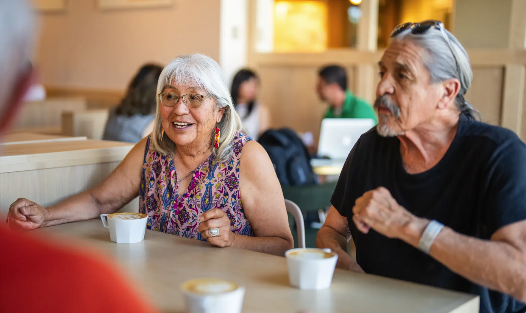
- Details
- By Levi Rickert
A federal judge in Boston will decide whether Supplemental Nutrition Assistance Program (SNAP) benefits should continue into November after 25 states—half of the nation—filed a lawsuit against the Trump administration to compel the release of food assistance funds during the ongoing federal government shutdown.
The lawsuit, filed in the U.S. District Court for the District of Massachusetts, accuses the administration of unlawfully withholding billions of dollars in contingency funds specifically set aside for SNAP operations during lapses in federal funding.
The U.S. Department of Agriculture (USDA) announced two weeks ago that SNAP, which provides food stamps to more than 42 million Americans, will run out of money at the end of October. The shutdown, now in its fifth week, threatens to cut off critical food assistance nationwide, including for an estimated 500,000 Native Americans across Indian Country.
On Thursday, U.S. District Judge Indira Talwani, an appointee of President Barack Obama, heard arguments in the case. The Trump administration, through the USDA, contended that the shutdown does not constitute an emergency and that contingency funds cannot be used to cover benefits during a lapse in appropriations.
Judge Talwani appeared skeptical of that argument, questioning how the potential loss of food assistance for millions could not qualify as an emergency.
Plaintiffs also pointed to prior USDA guidance—since removed from the agency’s website—that had supported the use of contingency funds during government shutdowns, undercutting the administration’s current stance.
Judge Talwani is now weighing whether to issue an emergency order requiring the federal government to resume SNAP payments in November, a decision that could determine whether millions of Americans continue receiving food assistance as the shutdown drags on.
More Stories Like This
Native News Weekly (August 25, 2024): D.C. BriefsMonday Morning (March 2, 2026): Articles You May Have Missed This Past Weekend
Native News Weekly (March 1, 2026): D.C. Briefs
Scope Narrowed, Report Withheld: Questions Mount Over Michigan Boarding School Study
Zuni Youth Enrichment Project Announces Family Engagement Night and Spring Break Youth Programming
Help us defend tribal sovereignty.
At Native News Online, our mission is rooted in telling the stories that strengthen sovereignty and uplift Indigenous voices — not just at year’s end, but every single day.
Because of your generosity last year, we were able to keep our reporters on the ground in tribal communities, at national gatherings and in the halls of Congress — covering the issues that matter most to Indian Country: sovereignty, culture, education, health and economic opportunity.
That support sustained us through a tough year in 2025. Now, as we look to the year ahead, we need your help right now to ensure warrior journalism remains strong — reporting that defends tribal sovereignty, amplifies Native truth, and holds power accountable.
 The stakes couldn't be higher. Your support keeps Native voices heard, Native stories told and Native sovereignty defended.
The stakes couldn't be higher. Your support keeps Native voices heard, Native stories told and Native sovereignty defended.
Stand with Warrior Journalism today.
Levi Rickert (Potawatomi), Editor & Publisher

